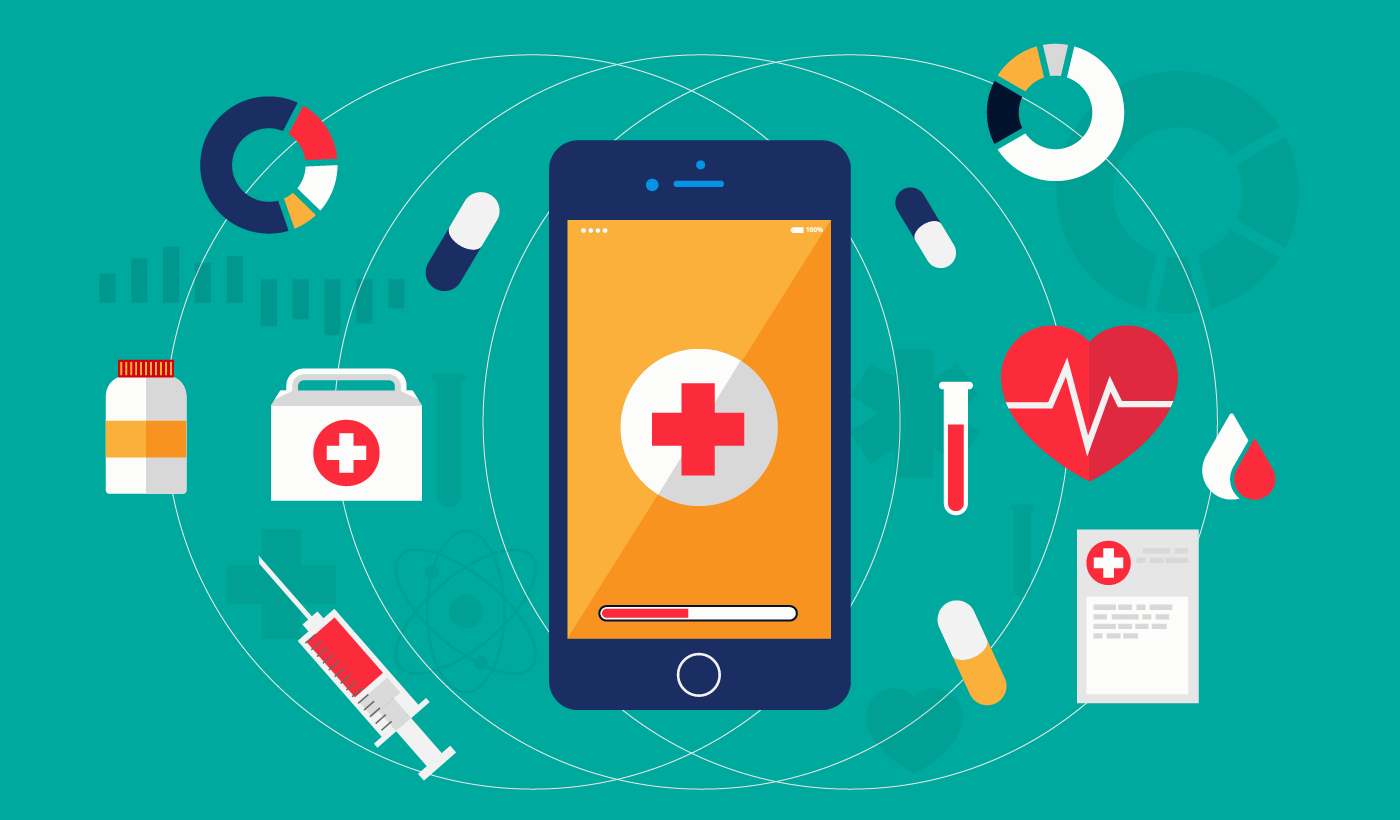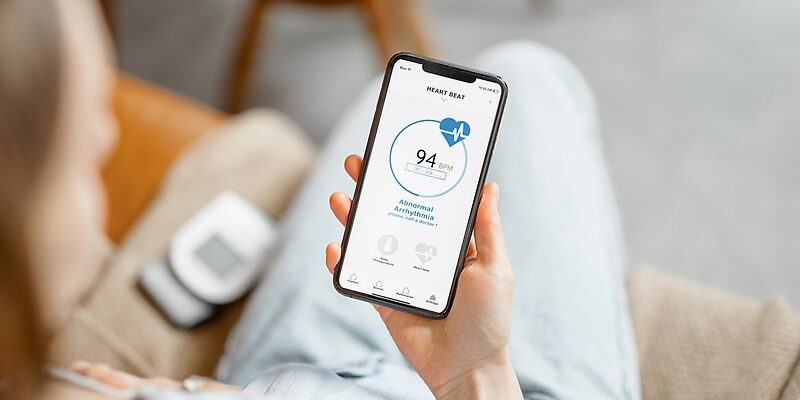
Mobile apps can be used to encourage healthy lifestyles, known as mHealth, and for early detection of chronic diseases. These technologies hold considerable promise in addressing conditions such as metabolic syndrome and improving conventional healthcare. Integrating the Information-Motivation-Behavioral Skills (IMB) model into mHealth interventions provides a valuable framework for understanding and addressing risk factors associated with metabolic syndrome
Metabolic syndrome is defined as the presence of three or more health risk factors. These factors include high blood pressure, high blood sugar, belly fat, high levels of fat in the blood (hypertriglyceridemia), and low levels of good cholesterol (HDL) (1). Metabolic syndrome can be exacerbated by the combined impact of multiple risk factors driven by unhealthy lifestyles. However, it can be effectively managed through sustained lifestyle improvements (2-5).

In this context, the introduction of mobile health (mHealth) as a behavioral intervention strategy has improved healthcare delivery by addressing the limitations of in-person services (6). mHealth includes health management apps and interconnected devices, and has increased demand for health promotion programs focusing on lifestyle management, such as diet, physical activity, and sleep.
The European Commission has acknowledged the potential of mHealth as a means to encourage behavioral modifications and equip patients with the tools to manage their health proactively and adhere to treatment regimens. In particular, the European mHealth Hub has launched a project to integrate mHealth solutions into healthcare systems across Europe, ensuring widespread access and benefit (7).
As part of this initiative, the consortium implemented national mHealth interventions in selected EU countries and established a centralized Knowledge and Innovation Hub for mHealth to support the monitoring, adoption, and advancement of mHealth technologies.
For non-communicable diseases such as diabetes, which is closely linked to metabolic syndrome, mobile technologies play a crucial role in raising awareness of risk factors and supporting disease tracking and management at home.
mHealth Intervention

Health behavior interventions aimed at improving lifestyle habits must utilize multiple methods simultaneously (8). mHealth facilitates the implementation of a range of behavioral interventions that extend beyond traditional in-person services.
mHealth provides opportunities for education, information dissemination, personalized goal-setting, monitoring, individualized counseling, motivational prompts, incentives, gamification, and peer communication. The objective of the service is to promote healthy habits, such as walking and tracking nutrition and exercise, via a mobile application.
In a recent study, participants monitored their health using mobile devices for six months (9). The study used mHealth data from Korea’s Health Promotion Institute’s public health centers to target adults at risk of metabolic syndrome. Launched as a pilot in 2016, the program employed mobile phone apps and devices administered by a team of healthcare professionals to provide personalized health services.

These devices included activity trackers and monitors for body composition, blood sugar, and blood pressure. Data were recorded daily, weekly, and monthly through images and graphs, which were viewable on a mobile dashboard. The program focused on nutrition and exercise, and provided monthly counseling sessions. The program utilized goal-setting, push notifications, and weekly health tips to facilitate behavior modification. Monthly reports contained detailed analyses of individual health trends. To enhance user engagement, the app incorporated interactive game elements, such as unexpected missions, comments, and a points-based reward system. Participants showed healthier behaviors, with better healthy eating (score increased from 5.0 to 6.4) and more physical activity (rose from 41.5% to 59%). Health risk factors dropped significantly, too, from 2.4 to 1.4. Also, fewer subjects had three or more metabolic syndrome components, from 42.3% to 19.2% (9).
From mHealth to the IMB Framework
Many theories attempt to explain changes in health behaviors, with the Information–Motivation–Behavioral Skills (IMB) model standing out as a prominent example. This model integrates three essential components for modifying and sustaining health-related behaviors: information, motivation, and behavioral skills.

According to the IMB model, positive behavioral changes and health outcomes occur when individuals have adequate health information, are motivated to change, and have the necessary skills to take action (11). This information includes knowledge of disease causes, symptoms, treatments, and preventive measures. Motivation involves personal attitudes, social support, and perceived norms that influence health behaviors. Behavioral skills refer to the practical abilities and self-efficacy required to carry out these behaviors.
The IMB model is widely used and has proven effective in designing and evaluating health promotion and chronic disease interventions (12). Applied to mHealth strategies, the IMB model could improve understanding and management of metabolic syndrome risk factors by emphasizing the need for informed, motivated, and skilled individuals to achieve long-term health improvements.
Rethinking mHealth: Limitations and Opportunities
Interventions based on IMB theory that aim to improve medication compliance, self-management, and risk-prevention behavior have demonstrated strong efficacy (12, 13, 14, 15-17). Sustained behavioral skills and higher adherence to health behaviors were significantly associated with improved health outcomes among the IMB components, Park and Jang found (9). These findings align with those of systematic reviews and meta-analyses demonstrating that mHealth-based physical activity and lifestyle interventions effectively reduce cardiometabolic risk (18).

However, this approach has limitations due to the unstructured nature of non-face-to-face interactions. Mobile apps allow users to share health practice data and receive support based on their engagement. However, when inactive users fail to input information, counselors can only offer general guidance. Consequently, these users often lose interest and disengage from health practices, creating a vicious cycle.
Indeed, non-users avoid mobile phone applications because the platform does not align with their lifestyle patterns or because manually entering health practices is cumbersome, a study by Yong et al. indicated (19). This suggests that despite the many advantages of mobile platforms, face-to-face or similarly structured interventions may still be necessary in certain contexts.
Future research should investigate sociodemographic differences between consistent and inconsistent users to better understand usage patterns. Additionally, there is a need to design interventions tailored to specific user groups that incorporate principles of behavioral economics, such as nudges, to enhance engagement. Ultimately, the goal should be to deliver personalized health content through automated, algorithm-driven systems.
- Laura Avogaro from FRESCI
- No Comments
Bibliography
-
- National Heart, Lung and Blood Institute. What is metabolic syndrome? https://www.nhlbi.nih.gov/health/healthtopics/topics/ms Updated: June 22, 2016 Accessed September 14 2017.
- Grundy, S.M. Metabolic Syndrome Update. Trends Cardiovasc. Med. 2016, 26, 364–373.
- Alberti, K.G.M.M.; Zimmet, P.; Shaw, J. Metabolic Syndrome—A New Worldwide Definition. A Consensus Statement from the International Diabetes Federation. Diabet. Med. 2006, 23, 469–480.
- Heo, G.-B. Metabolic Syndrome, 2nd ed.; Jin Planning: Seoul, Republic of Korea, 2009.
- S´wia˛tkiewicz, I.; Nuszkiewicz, J.; Wróblewska, J.; Nartowicz, M.; Sokołowski, K.; Sutkowy, P.; Woz´niak, A. Feasibility and Cardiometabolic Effects of Time-Restricted Eating in Patients with Metabolic Syndrome. Nutrients 2024, 16, 1802.
- Sriram Iyengar, Chapter 12 – Mobile health (mHealth), Fundamentals of Telemedicine and Telehealth, 2020, Pages 277-294.
- WHO – ITU mHealth Hub in EU (2017). https://cordis.europa.eu/project/id/737427
- Schoeppe, S.; Alley, S.; Van Lippevelde,W.; Bray, N.A.; Williams, S.L.; Duncan, M.J.; Vandelanotte, C. Efficacy of interventions that use apps to improve diet, physical activity and sedentary behaviour: A systematic review. Int. J. Behav. Nutr. Phys. Act. 2016, 13, 127.
- Park, N. Y., & Jang, S. Effects of mHealth Practice Patterns on Improving Metabolic Syndrome Using the Information-Motivation-Behavioural Skills Model. Nutrients 2024, 16(13), 2099.
- Korea Health Promotion Institute. Mobile Healthcare Pilot Project Guide; Korea Health Promotion Institute: Seoul, Republic of Korea, 2016.
- Fisher, W.A.; Fisher, J.D.; Harman, J. The information-motivation-behavioral skills model: A general social psychological approach to understanding and promoting health behavior. In Social Psychological Foundations of Health and Illness; John Wiley & Sons: Hoboken, NJ, USA, 2003; pp. 82–106.
- Fisher, J.D.; Fisher, W.A. Changing AIDS-risk behavior. Psychol. Bull. 1992, 111, 455.
- Mayberry, L.S.; Osborn, C.Y. Empirical validation of the information–motivation–behavioral skills model of diabetes medication adherence: A framework for intervention. Diabetes Care 2014, 37, 1246–1253.
- Bian, C.; Xu, S.; Wang, H.; Li, N.; Wu, J.; Zhao, Y.; Lu, H. A study on the application of the information-motivation-behavioral skills (IMB) model on rational drug use behavior among second-level hospital outpatients in Anhui, China. PLoS ONE 2015, 10, e0135782.
- Chang, S.J.; Choi, S.; Kim, S.-A.; Song, M. Intervention strategies based on information-motivation-behavioral skills model for health behavior change: A systematic review. Asian Nurs. Res. 2014, 8, 172–181.
- Jeon, E.-J. Development and Effectiveness Evaluation of Diabetes Self-Management Mobile App Based on IMB Model. Ph.D. Thesis, Seoul National University Graduate School, Seoul, Republic of Korea, 2017.
- Lee, S.-H.; Kim, H.-R. Predictive Model of Self-Management Implementation and Quality of Life in Elderly Diabetic Patients Using a Community Health Promotion Room. J. Korean Acad. Nurs. 2017, 47, 514–525.
- Sequi-Dominguez, I.; Alvarez-Bueno, C.; Martinez-Vizcaino, V.; Fernandez-Rodriguez, R.; del Saz Lara, A.; Cavero-Redondo, I. Effectiveness of Mobile Health Interventions Promoting Physical Activity and Lifestyle Interventions to Reduce Cardiovascular Risk Among Individuals with Metabolic Syndrome: Systematic Review and Meta-Analysis. J. Med. Internet Res. 2020, 22, e17790.
- Yong, J.; Bae, B.-J. An Analysis of Non-users of Mobile Healthcare Applications: Based on Diffusion of Innovations Theory. J. Korean Soc. Inf. Manag. 2017, 34, 135–154.
